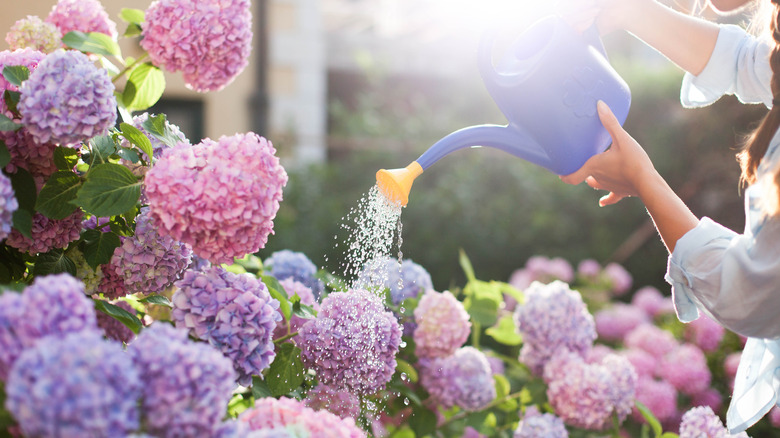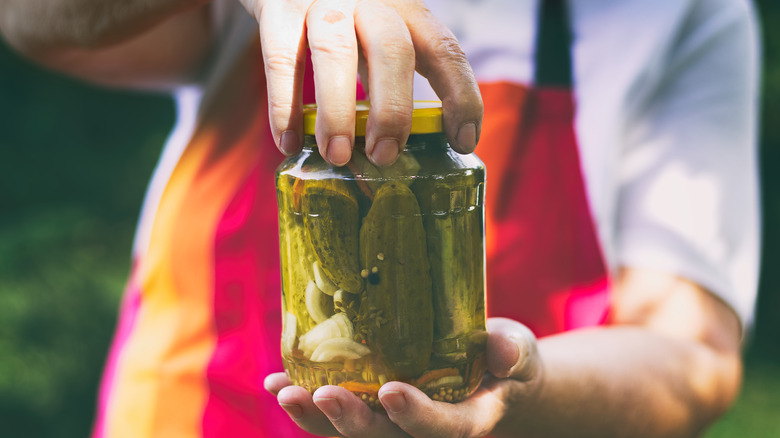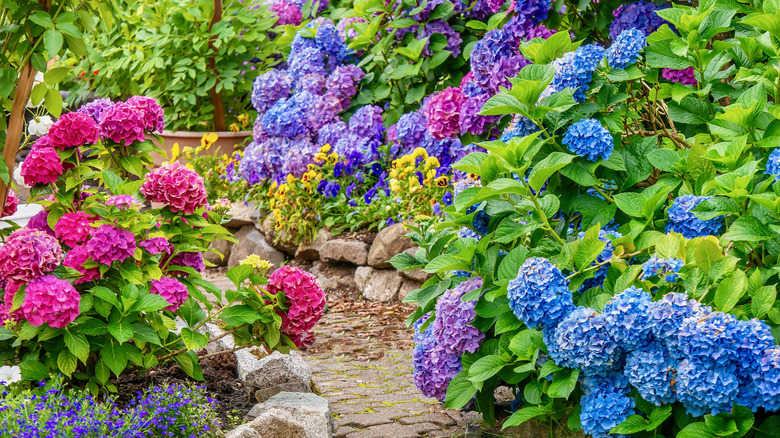Is Pickle Juice The Secret To Thriving Hydrangeas?
Hydrangeas exude timeless beauty in their diverse hues and lush clusters at the height of each summer. With their elegant petals delicately interlaced, they enchant gardens and bouquets alike, leaving an indelible mark on their beholders. These versatile blooms gracefully transform with soil acidity, displaying vivid blues, pinks, and purples. Majestic and abundant, from their verdant foliage to their ethereal blossoms, hydrangeas are captivating additions to tablescapes, bridal bouquets, or simply as the focal point of a garden.
Hydrangeas demand specific care due to their sensitivity to environmental conditions. Proper watering, soil acidity, and sunlight exposure play vital roles in their growth and coloration. Pruning at the right time ensures robust blooms. Diligent attention and tailored care help these exquisite flowers thrive and flourish to their fullest potential. You may not know, but the back of your refrigerator holds the key to unlocking beautiful blooms all season long. Reach into the icy depth of your fridge and pull out that murky jar of pickle juice. Scoot outside and give your hydrangea a splash of that salty, briny goodness to encourage healthy growth and breathtaking blooms.
How to add pickle juice to your hydrangea bushes
Using pickle juice to water hydrangeas can be an interesting and cost-effective method to help enhance the color and health of the flowering bushes. After finishing a jar of pickles, save the leftover juice. Check to make sure that it doesn't contain any additives like garlic or spices, as these might harm the plants. Since hydrangeas are sensitive to strong concentrations of acid, it's important to dilute the pickle juice before using it. Mix one part pickle juice with 20 parts water. This will create a milder solution that won't shock the plants.
Water your hydrangeas with the pickle juice solution in the morning or late afternoon. Avoid watering during the hottest part of the day to prevent potential damage to the plants and evaporation of the solution. Use the pickle juice solution to water your hydrangeas once every two to four weeks during the growing season. Overdoing it can lead to excessively acidic soil, causing harm to the plants. Keep a close eye on your hydrangeas to assess whether they are responding well to the pickle juice treatment. If you notice any signs of stress, like wilting or yellowing leaves, discontinue using the pickle juice solution. Finally, remember that not all hydrangea varieties respond to changes in soil pH, and the color change might not be drastic. If you prefer more vibrant and controllable color variations, you can consider using specialized hydrangea fertilizers specifically formulated for altering flower colors.
Why it works
Using pickle juice to water hydrangeas can be beneficial for the plants, primarily due to the acidic properties of the pickle juice. Hydrangeas are unique in that their flower color can be influenced by the pH level of the soil they grow in. The availability of aluminum in the soil, affected by soil acidity, plays a significant role in determining the flower color. Since pickle juice contains acetic acid, which is a weak acid, when diluted and applied in moderate amounts, the acidity of the pickle juice can help to slightly lower the pH of the soil. This slight decrease in pH creates a more acidic environment, making aluminum more available to the plant. When hydrangeas uptake aluminum, it affects the pigmentation of the flowers.
For some hydrangea varieties, particularly those with blue and purple flowers, acidic soil conditions promote the availability of aluminum, resulting in more intense and vibrant colors. Therefore, watering hydrangeas with diluted pickle juice can intensify the blue tones in their blooms and enhance the overall color display. However, it is essential to emphasize that moderation is key when using pickle juice or any acidic solution on plants. Too much acidity can harm the hydrangeas and other plants in the vicinity. Additionally, not all hydrangea varieties respond to changes in soil pH, so the impact of pickle juice on flower color may vary.


